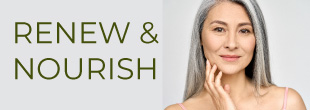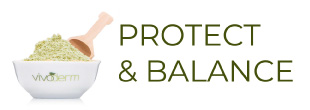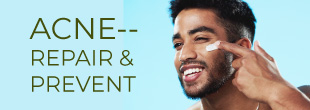Rosemary Uses for Health and Skincare
By Van Le | Rosemary is a widely-used herb in many natural products, specifically natural skin care products. Its use has been traced back to ancient and medieval times, when it was used as an antiseptic to care for wounds thanks to its restorative properties. Rosemary is edible and is often used as a spice for cooking.
When added to food, rosemary provides key nutrition such as calcium, iron, and Vitamin B. What is good for the body is also good for the skin, therefore, rosemary and its oil extracts have been used medicinally for hundreds of years. In modern times, rosemary has been a wildly popular ingredient in many herbal skincare products and cosmetics.
Rosemary is an evergreen herb that is native to the Mediterranean region, and is known as the “dew of the sea” because it first grew predominantly along the Italian coast. Today, rosemary can be grown in a typical garden with relative ease. The leaves can be crushed and used as an herb for cooking, and the health and cosmetic benefits of this herb are plentiful. Rosemary is popular in the kitchen as spice for fish, meat and poultry.
Outside the kitchen, rosemary oil improves digestion, boosts mental activities, and strengthens follicles for increased hair growth and stronger hair. It is high in anti-oxidants, making it a key ingredient in the fight against tumors and cancer. Rosemary stimulates brain activities, fights off free radicals, and is a key component in the fight against cancer.
The health benefits of rosemary are plentiful, but the cosmetic benefits are even more rewarding.
Also known as Rosmarinus Officinalis, rosemary is rich in minerals, has a pleasantly compelling smell, and contains powerful anti-inflammatories. According to an article by Dr. Winston Craig, “The terpenoids in rosemary, such as rosmarinic acid, rosmanol, carnosol and ursolic acid provide effective anti-inflammatory benefits, while ursolic acid conveys anti-tumor properties.” When used on the skin it stimulates blood flow and helps improve skin functions, resulting in a healthy complexion.
A common indication of skin damage and aging skin is broken capillaries, a condition where capillary walls rip and blood seeps to the surface of the skin. As a result, fine, red lines appear under the surface of the skin, creating an unpleasant look. Rosemary has been known to reduce the appearance of broken capillaries. It stimulates circulation, reduces the appearances of the red lines, which makes it an effective element in anti-aging products. Rosemary is also effective in reducing under-eye puffiness since it is able to increase circulation and help drain toxins that accumulate in the area directly under the eyes.
Thanks to its antimicrobial and astringent properties, Rosemary is also used to treat symptom of acne. When used as an astringent, rosemary helps cleanse the skin by clearing clogged pores, removing dead skin cells, and stimulating cell renewal. It also prevents excess oil buildups that can lead to inflamed pores.
Rosemary can also be made into essential oils, teas, and powders. Its soothing and rejuvenating properties are commonly used in aromatherapy for overall wellness. As with everything, moderation is key. Rosemary should not be used by those suffering from hypertension or epilepsy, and women who are breastfeeding should consult a doctor before consuming rosemary herbs.
Rosemary is a key ingredient in Vivoderm’s anti-acne mask, anti-aging mask, intense moisturizer, facial cleanser, facial toner, body butter and foot cream.
Van Le is a staff writer for the CSU Daily Titan and writing intern for Vivoderm Laboratories in Los Angeles, California. She is currently pursuing a Journalism degree at California State University, Fullerton.
For the latest findings on natural skincare, you can also link to http://naturalsoapinfo.com




